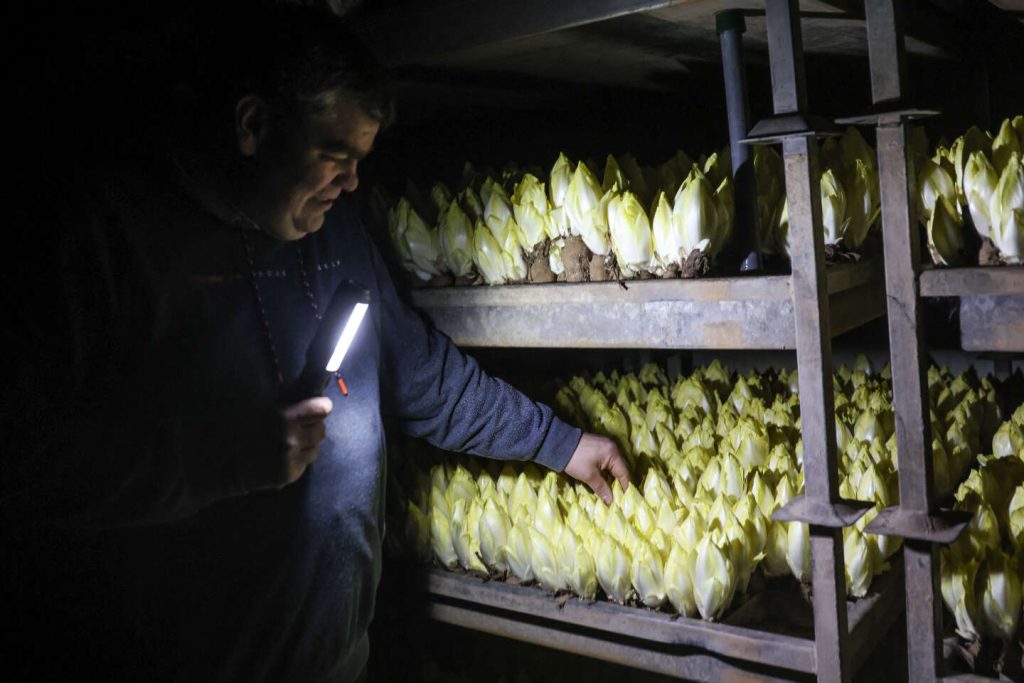The barbecue is set up on the safety barriers of the N12 at Caulnes (Côtes-d’Armor). On January 24th, around 150 Breton farmers gather to enjoy grilled sausages wrapped in crepes. They joke about it being the “four o’clock snack of the brave” before toasting to the success of blocking the expressway. Like in many parts of France, farmers are expressing their frustration at not being able to make a decent living from their profession. Florent Gaultier, the president of the Young Farmers in the department, rallies the crowd to prepare for what comes next.
The 34-year-old farmer delegates young people to create obstacles with their tractors to protect the blockade. A camp must be set up under the bridge for the night and the following nights. Names, phone numbers, and availability must be written down at a table to organize guard shifts. Florent Gaultier warns, “This showdown will last. The cooperatives should support us with men, supplies, and trucks!” Some farmers in the crowd look skeptical. “The cooperatives? They haven’t cared about us for a long time!” one farmer is surprised. Another chuckles, “You’re right, they are as much a part of the solution as the problem…”
Throughout this media-driven day, no one mentioned the responsibility of this unknown but essential cog in French agriculture, choosing instead to blame Europe, the government, industrialists, and large retailers. However, in small groups, farmers dare to criticize the 2,100 groups to which three out of four farmers belong. Their historical “tool.” Massively developed after World War II to support the rise of productivity, cooperatives were shaped by farmers themselves to collectively negotiate seeds, fertilizers, pesticides, and to process and sell their produce. “Unity is strength,” was the encouragement in rural areas.
Over the past decades, this network of small local structures has shrunk. Engaged in a globalized agriculture that demands producing more and cheaper, these companies have grown through mergers, built factories, acquired brands, diversified their activities, and invested abroad. Around thirty of them have become international companies with more than one billion euros in annual turnover. It remains to be seen how the cooperatives will react to the growing discontent among farmers and their demands for better support and fair treatment.


